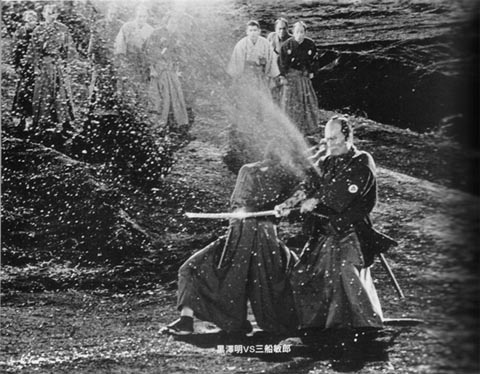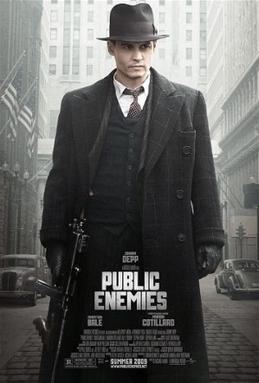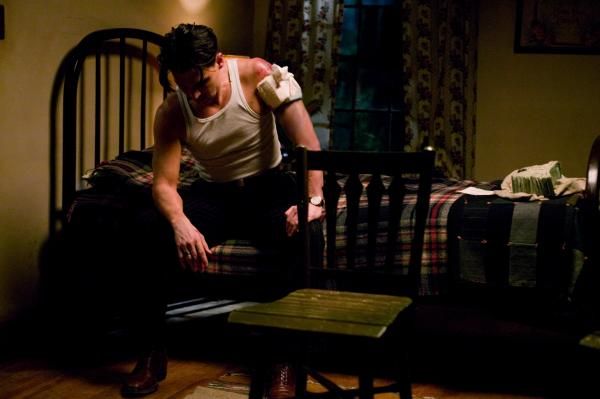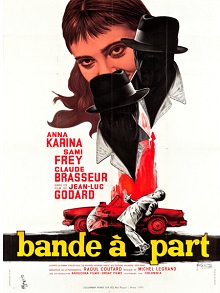
The Man Who Wasn't There, 2001
Dir: Joel Coen (and Ethan Coen)
June 30, 2009
Netflix Wakefield MA
Another neo-noir from the Coens? You bet, and again their visual style and lyrical flair help transcend this film from just a tribute to the great Noir films of the 40s and 50s to a great period piece in it's own right.
The film, shot in color but transfered to black and white, looks fantastic, and has a tremendous cinematic appeal, the way only a black and white film can really make you feel that your watching a movie. Off the bat, the inner-monologue narration and low-key, high contrast lighting pays a lot of debt to those movies of the 40s and 50s, such as
Double Indemnity (1944) and
The Postman Always Rings Twice (1946). I'm going to say that I love the lighting and I hate the narration. I understand that it's a huge part of the genre, but I hate voice-over narration in general, as the images and dialogue should tell you all you need to know, or what the director wants you to know (watch
Chinatown (1974) ). The film's content and weird mannerisms, however, owe a higher debt to some later films in the genre, the works of true masters: Orson Welles's
The Lady From Shanghai (1948) and
Touch of Evil (1958), and Billy Wilder's
Sunset Boulevard (1950).
Ed Crane (Billy Bob Thornton) is a barber, and by his own admission, he doesn't talk much. He knows that his wife (Frances McDormand) is having an affair with her boss, "Big" Dave (James Gandolfini), and really doesn't care about it. But a man, Tolliver (Jon Polito), comes into the shop one day and talks to Ed about opening a dry cleaning business but needing and investment to open it, and Ed, as we know through his monotone, dry inner-monologues, is in need of some change, and knows what he can do. So he blackmails Big Dave for $10,000 to provide capital for the "pansy's" (the man makes a pass at Ed during their first meeting in the hotel, and Big Dave, who was the original target the man thought he could get the money from, must have known something about this too because that is his term for him) business venture. The Pansy disappears though, leaving Ed to think that he has been suckered. Big Dave calls him late one night, and already having listened to his vague confessions earlier, reluctantly agrees to head over to his store. Big Dave hunted down The Pansy, thinking he was blackmailing him, but getting a confession that it was indeed Ed. Enraged at this so-called betrayal ("What kind of a man are you?"), Big Dave begins to strangle Ed, who only saves himself by stabbing Big Dave in the neck with knife used as a cigar cutter. No one sees Ed leave, but soon enough the body is found, and Ed's wife has become the prime suspect.
Ed Crane is the sort of man that has let everything slide in his life; his apathy is a defense mechanism. In one scene, trying to convince the teenage daughter of a friend (Scarlett Johansson) that her piano playing is her ticket to a better life, and maybe even his, he tells her, "I haven't always been dealt the best cards in life. I don't know, maybe I have, and I just didn't know how o play 'em." The comedy of errors that plays out over the film just ends up as a sad reminder of how life picks and chooses sometimes, even when we work really hard to better our own situations. Ed's sadnesses tend to come out in ruminations, like his philosophical wax on hair after he kills Big Dave: "This hair...you ever wonder about it?...I don't know. How it keeps on coming. It just keeps growing. No, I mean it's growing, it's part of us. And we cut it off. And we throw it away."

But really, you know what to expect, if you've ever seen a noir before: greed, dark secrets, and murder, in a world of fedoras, cigarette smoke, snapping lighters, and deep moral turpitude. A world where nothing or no one is what they seem, and the only sure thing is that, in the end, some sap is gonna get it. The sad thing is that Ed's best efforts seems to be in vain, even he can't withstand the tide of the genre: "I don't know where I'm being taken. I don't know what I'll find, beyond the earth and sky. But I'm not afraid to go. Maybe the things I don't understand will be clearer there, like when a fog blows away. Maybe Doris will be there. And maybe there I can tell her all those things they don't have words for here. "
 Harry Potter and the Half-Blood Prince, 2009
Harry Potter and the Half-Blood Prince, 2009













